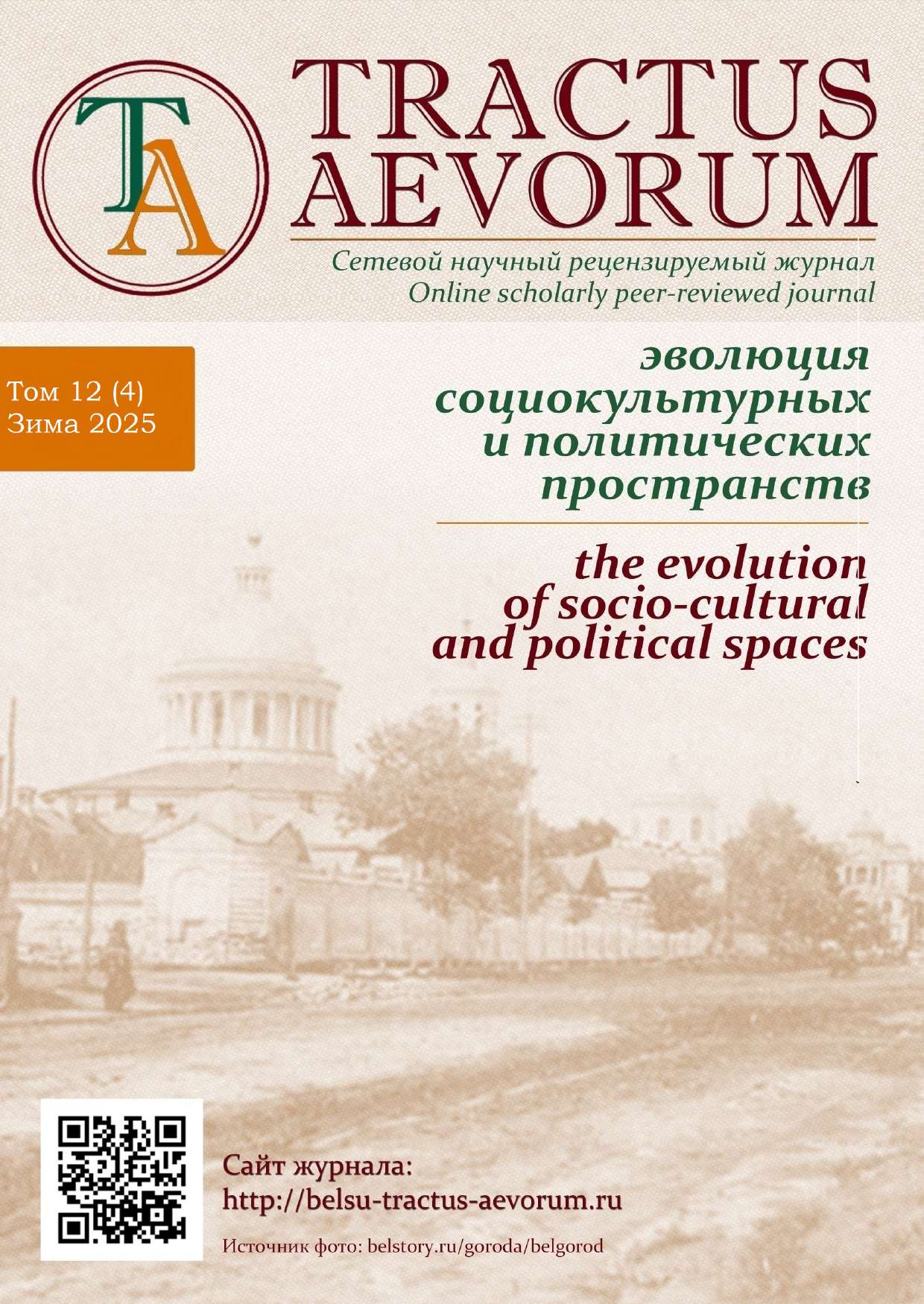|
DOCUMENTS AND PEOPLE
|
Description of the Towns of the Kursk Governorate with their Counties (based on the materials of the “Economic Notes to the Plans of Dachas of the General Land Survey“) in the 1780s-1790s: Economic and Demographic Analysis
|
  |
Original article
Alexander A. Pchelinov-Obrazumov
Regional State Government Institution “State Archive of the Belgorod Region“ (RSGI “SABO“)
14 Mokrousov St., Belgorod, 308024, Russia
E-mail:
This e-mail address is being protected from spambots. You need JavaScript enabled to view it
Nikolay N. Fomichev
Regional State Government Institution “State Archive of the Belgorod Region“ (RSGI “SABO“)
14 Mokrousov St., Belgorod, 308024, Russia
E-mail:
This e-mail address is being protected from spambots. You need JavaScript enabled to view it
Abstract. The paper analyzes the description of the cities of the Kursk governorate in the 1780s based on the “Economic Notes to the Plans of Dachas of the General Land Survey“. Kursk governorate was an administrative-territorial unit of the Russian Empire in 1779-1796, consisting of 15 counties with county towns. The study of this source allows us to consider the geographical conditions, demographic characteristics, and economic development of the territories now part of the modern Kursk and Belgorod regions.
Keywords: “Economic Notes to the Plans of Dachas of the General Land Survey“, Kursk governorate, Kursk, Belgorod, Stary Oskol, Rylsk, Sudzha.
DOI: 10.18413/2312-3044-2025-12-4-303-321
EDN: ZBDUQQ
|
Business correspondence between Minister L.A. Perovsky and Grand Duke Konstantin Nikolaevich in the early 1850s
|
  |
Original article
Tatyana A. Makovleva
National Research University «Higher School of Economics»
20 Myasnitskaya St., Moscow, 101000, Russia
E-mail:
This e-mail address is being protected from spambots. You need JavaScript enabled to view it
Abstract. The article examines the correspondence of L.A. Perovsky with Grand Duke Konstantin Nikolaevich in 1851-1852. Based on the documents, the author analyzes the issues on which the Minister of the Interior addressed the Grand Duke, primarily the disputes surrounding the road and construction commissions and the discussion of measures to reduce paperwork. It shows what administrative difficulties were identified during these discussions and what solutions were proposed.
Keywords: «enlightened bureaucracy», L.A. Perovsky, Grand Duke Konstantin Nikolaevich, State Council.
DOI: 10.18413/2312-3044-2025-12-4-322-332
EDN: UAYGTC
|
Compiling Diocesan Reference Books as an Activity of Officials of the Kursk and Voronezh Consistories at the Turn of the 19th to the 20th Century
|
  |
Original article
Marina S. Kremeneva
Ivnya Local History Museum (Verkhopenye Branch)
2 Tsentralnaya Street, Verkhopenye Village, Ivnyansky District, Belgorod Region, 309135, Russia
E-mail:
This e-mail address is being protected from spambots. You need JavaScript enabled to view it
Abstract. The article examines the specifics of the bureaucratic apparatus of ecclesiastical consistories in compiling reference literature about the diocese, based on archival documents and materials from diocesan periodicals. The study analyses the reasons that prompted officials to systematise and update information about the Kursk and Voronezh dioceses during the period under review. Furthermore, the paper demonstrates the mechanism for the further distribution of reference publications within the diocese.
Keywords: consistory, officialdom, Voronezh diocese, Kursk diocese, A.M. Pravdin, Kh.F. Govyadovsky.
DOI: 10.18413/2312-3044-2025-12-4-333-345
EDN: BWTBFY
SCHOOL STORIES
|
Mischief and Violations of Discipline in Schools and Gymnasiums of the Kuban Province in the Late 19th — Early 20th century Centuries
|
  |
Original article
Sergey V. Martynenko
Belgorod State National Research University
85 Pobedy st., Belgorod, 308015, Russia
E-mail:
This e-mail address is being protected from spambots. You need JavaScript enabled to view it
Abstract. The article examines the problems of discipline violations in schools in the Kuban province in the late 19th and early 20th centuries and the disciplinary measures taken by the administrations of educational organizations against violators. A wide range of personal sources, archival data, and empirical material from scientific articles are analyzed. The study has identified the causes of discipline violations and destructive behavior of adolescents in educational institutions at various levels.
Keywords: everyday life, discipline, one- and two-grade schools, parish schools, vocational schools, gymnasiums, pupils, high school students.
DOI: 10.18413/2312-3044-2025-12-4-346-354
EDN: CIJUYS
|
The Seven-Year School in Komsomolskaya Street: From the History of Belgorod's Junior High School No. 2 in the First Months after the Town's Liberation from Enemy Occupation
|
  |
Original article
Alexandr A. Kolotushkin
Independent researcher
Belgorod, Russia
E-mail:
This e-mail address is being protected from spambots. You need JavaScript enabled to view it
Abstract. The article is devoted to the functioning of junior high school No. 2 in Belgorod during the first months following the town's final liberation from enemy occupation during the Great Patriotic War. A brief background story about the building occupied by the school is also provided. The main sources on this topic are materials from the Belgorodskaya Pravda newspaper and the statistical reports of the Belgorod City Department of Public Education for the period under study.
Keywords: junior high school (JHS), report, list, class, student, teacher.
DOI: 10.18413/2312-3044-2025-12-4-355-366
EDN: KPSJAS
INTELLECTUAL HISTORY
|
Michelle Perrot: Contribution to Science, Scholarly Connections, and Citation Practices
|
  |
Original article
Elizaveta R. Aseeva
Directorate for State Protection of Cultural Heritage Sites of the Belgorod Region
32 Knyaz Trubetskoy St., Belgorod 308000, Russia
E-mail:
This e-mail address is being protected from spambots. You need JavaScript enabled to view it
Abstract. The article explores the scholarly contribution and scope of influence of the French historian Michelle Perrot. The study is based on an analysis of the citation rates of her works, using scientometric methods. The author concludes that Michelle Perrot has had a global impact on gender and social history, and demonstrates the effectiveness of applying scientometric methods in this research.
Keywords: scientometrics, citation analysis, Michelle Perrot, gender history.
DOI: 10.18413/2312-3044-2025-12-4-367-380
EDN: KUPQDN
|



